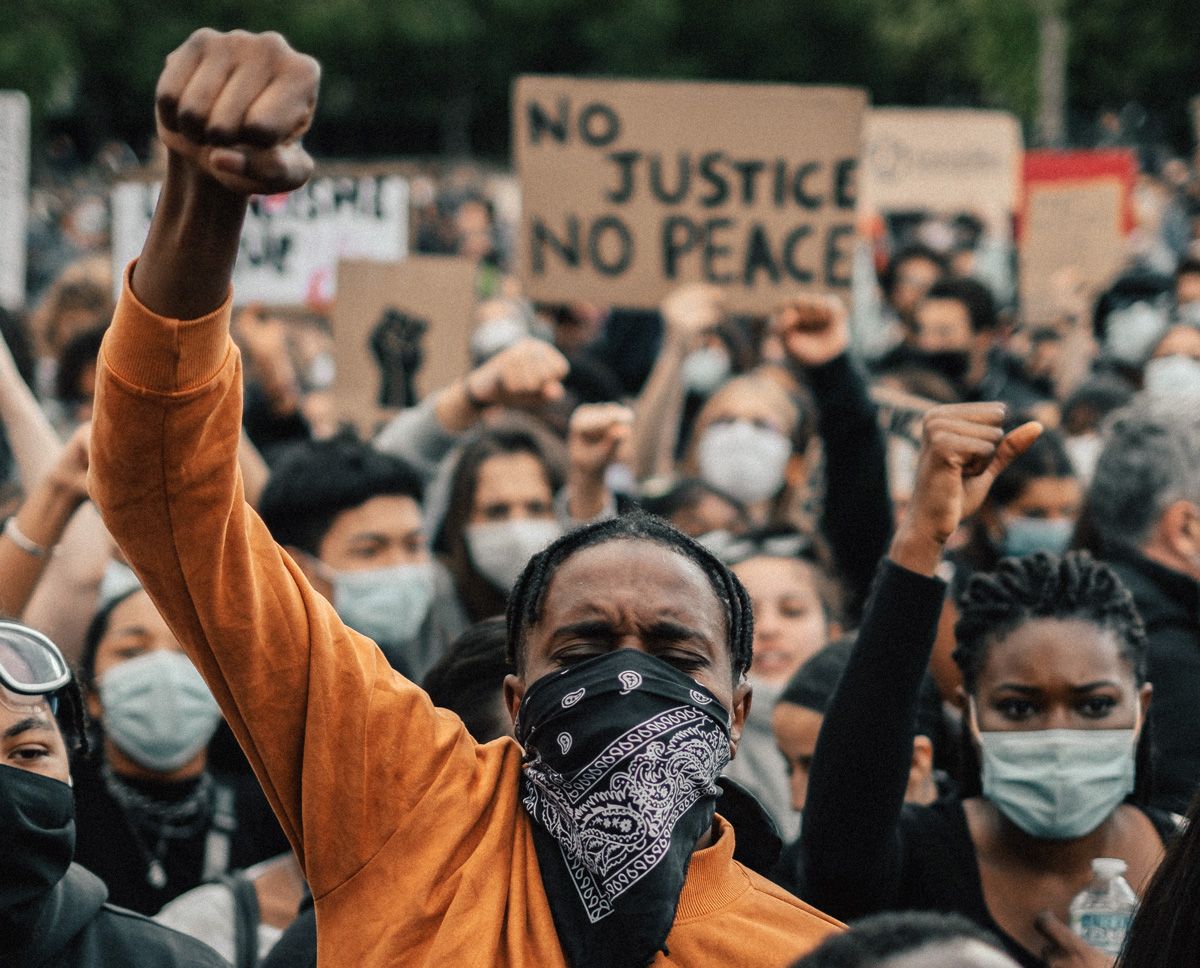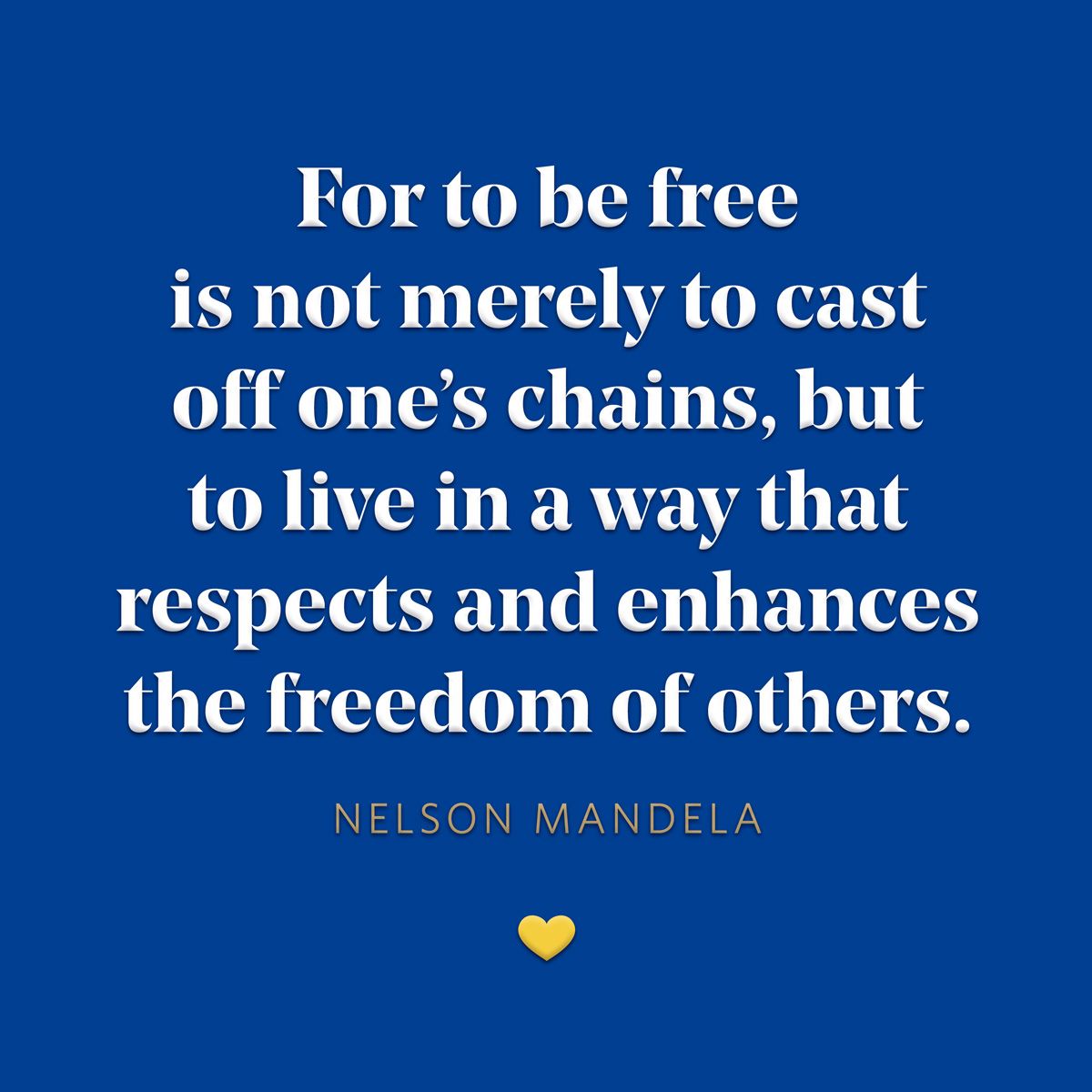|
OHF Weekly, Vol. 5 No. 4: Editor’s Letter, “With Biases, You Don’t Know What You Don’t Know,” “Write with Us,” “Mastodon + OHF,” and a quote by Nelson Mandela Editor’s Letter💛 Hey Reader, When there is a murder as shocking and heinous as that of Tyre Nichols, it colors everything you see and do for quite some time. You see someone on a skateboard and you see Tyre. You enjoy a sunset and you see Tyre. You encounter a so-called law enforcement officer, and you see Tyre. At this point, most of us know a fair bit about who he was: a tall, slender handsome young man who loved to take photographs, adored his little boy, and called out for his mother as they beat him to death just steps from her front yard. A sweet guy by all accounts, who never did a thing wrong then or ever. Beyond who he was as an individual, his death is an all-too-vivid symbol of the worst in America—the injustice, the systemic racism, the fear every Black parent has when their child leaves the house. Yes, we all fear for our children, regardless of color, but white folks have the luxury of relaxing a bit as the kids age. For Black folks, the fear is more intense, there is more real risk, and it never ends. My Black friends often say that white folks can’t comprehend how they feel, and to a large degree, they’re right. I have kids in their twenties and I know I’d be devastated to lose one of them. They also have a friend who’s almost one of my own and a tall, slender skateboarder; I think of him every time I see Tyre. I remember my younger daughter telling me how she got stopped on the way to a protest, and how the officer became less friendly when he saw the BLM sign on her seat. So sure, we white folks can and should relate—we all have the capacity for empathy, and incidents like this should motivate us to support our Black friends and change the world. But feeling that ball of fear that sits like a lead weight in the pit of your stomach day in and day out, every day of your life? White folks don’t know. We can’t. That is simultaneously the highest and the most basic level of white privilege. Why? What I cannot truly comprehend in Tyre’s murder is the why. I am unable to watch the video, but I’ve read plenty. Tyre was a good man, a good son, gainfully employed, and driving as well as anyone when the police decided to stop him. There’s a rumor that it could have been personal for one of the cops, but that doesn’t explain the other half-dozen or more of them. He’s obviously not the first person to be murdered by the police, but there were excuses in the other cases—“He was driving erratically,” “We thought he was reaching for a gun,” and on and on. While nothing justifies a murder, it makes the motive here crystal clear: Tyre was simply Black, and that’s reason enough. Of course, complicating matters, so were most of the officers. Whereas, when George Floyd was murdered half of white America spoke out and even joined in the protests, we are now relatively mute. This is, I think, for several reasons: we don’t know how to interpret it, we (many of us) don’t see how this is racism, we don’t know what to say. Some of us stopped reading when we saw that the perpetrators were arrested and charged. This is not enough. Conversely, Black people’s response has often been to be both sad and mad at every demographic. “How can they kill their own?!” It hurts to see the Black community suffering and simultaneously tearing itself apart debating the whats and whys. It’s not enough to blame the individuals, as we white people do, because when you’re Black it’s hard to be an individual; you are always representing. The Black community, and even Black women, too often the target of blame for everything wrong, have once again been a target here – particularly single mothers. Why weren’t these men raised right? To those who’d point that finger, I must disagree. I’d say that charging the men who did this – all of the men who did this – is the right start; they are grown adults who broke some of the most basic laws of humankind, even as they’d sworn to uphold the law. But it’s not that simple, and they are also victims of their environment: the policing profession. The Over-Long Arm of the Law Years ago, while attending college, I lived in the same facility as most of the seasoned police officers who’d come to town for training updates. I worked the snack bar and listened to them talk, hour after hour, night after night. I learned that there is a prototype for those who sign up “to protect and serve”: people who feel powerless for much in their lives and long for control, and/or those who tend to see “good and bad” in “black and white” vs. the gray that is humanity. And while I don’t just mean along racial lines, I imagine most or all of us are aware that racism is an even bigger issue among policemen than the general populace. Many officers come from military backgrounds, which reinforces those stereotypes – it’s much harder to shoot someone when you see their humanity. One can understand how some Black men, facing oppression in every corner of society, might be drawn to the idea of a position with “power” and “control.” One can also see why the position is highly problematic for Black men, sometimes resulting in “racial self-loathing,” as I believe Toni Morrison termed it. They must be police officers, first and foremost, and have each other’s backs regardless of color. At the same time, they are quite possibly ticking time bombs. Yes, these men need to be held accountable. We all need to be accountable. When we fail to stand up against systemic racism, people die – and not just those caught on video or who make the news. Rest in peace, Tyre. Meanwhile, I want to acknowledge that Trayvon Martin would have been twenty-eight this week – still a year shy of Tyre. Instead, he’s been gone an entire decade, stolen from his parents on the very edge of adulthood and robbed of justice. Tyre and Trayvon are a Part of Our History This month is of course still Black History Month, even as some factions press ahead to remove all traces of Black History from our education system and erase the white crimes of the past, including Trayvon’s murder – perhaps not surprisingly in the same part of the country. Normally, I love Black History Month, when we celebrate not only Martin Luther King, Jr., Maya Angelou, and Rosa Parks; and also acknowledge the achievements of the many less famous people who’ve helped advance our society. (As the content manager for a voice and messaging provider, there is no shortage of Black telecom professionals I can publicize – did you know the previous head of the Federal Communications Commission, Mignon Clyburn, was a Black woman!?) But right now every story is a blessing and yet a reminder of those attempts to erase it. Every month is really Black History Month, and Black History is American history. We know this. We need to highlight Black contributions every month of every year, in school and out, across the media, and everywhere white history is taught. But take advantage of the spotlight provided each February, when companies, politicians, journalists, and everyday white people pause to pay attention. Because Trayvon and Tyre – and Breonna, and Philando and Freddie and Tamir, to name just a few – are a part of that history, as well. We cannot let their names or their murders be erased, and we cannot continue with the systemic racism in the “justice” system that made them household names. Black History Month is a celebration but also a necessity. We must stop the murder of unarmed Black men, women, and children. Love one another. Sherry Kappel
OHF Weekly Managing Editor
NEW THIS WEEKBy Zhivi Williams Biases. We’ve heard the word thrown around often enough, but what are they? Who has them? What do they look like? And how do you know if you have them? I will walk you through my journey of discovering at least one I have. Bias DefinedBefore I start, though, let’s get on the same page with the definition of bias. If you do a Google search, you will find several definitions and types. According to Merriam-Webster Dictionary, bias is– a: an inclination of temperament or outlook, especially: a personal and sometimes unreasoned judgment: prejudice.
b: an instance of such prejudice.
c: bent, tendency.
I’m not a big fan of this definition because it doesn’t tell me exactly what a bias is. An example would help me to understand this concept better, but maybe this one resonates with you. Cambridge Dictionary defines bias a little differently– the action of supporting or opposing a particular person or thing unfairly, because of allowing personal opinions to influence your judgment.
This definition is ok. I understand this bias definition better, but an example would be helpful. However, this one may resonate with you as well. The following definition from Impactly, Inc. is the one I like best– Read the full article at OHF Weekly
BLACK HISTORY MONTHAnd the Afro-Mestizo emancipator who opened the door to Mexico for enslaved peopleBy Cocoa Griot There is a passion in my heart for history that began in my junior year of college. An African American studies course opened my eyes to an important fact: In previous grades, I suffered through His Story, not history class. The realization that my history education experience had been filled with the schoolyard bully accounts of conflicts was incredibly painful. This set me on a course to learn the truth. When I became an educator, I did not impart to my students the legacy of lies that my teachers taught me. My pupils deserved to know the truth about historical events, and I was determined to teach it to them. Teaching them about the damaging effects of white supremacy was imperative to me. Whitewashing history reinforces the narrative that only white people make substantive contributions to the world. I view this as an ongoing and orchestrated attack on the psyche of Black and Brown people. The truth of history will not only set us free, but it will also help unite us to fight a common enemy: racism. Songs in the Key of FreedomThere is no doubt that hymns were important in the lives of enslaved people. These stories in song transmitted messages of desire and often the path to freedom. Follow the drinkin’ gourd
Follow the drinkin’ gourd
For the old man is comin’ just to carry you to freedom
Follow the drinkin’ gourd
— African American Hymn
“Follow the Drinking Gourd” shared instructions to anyone seeking refuge to use the Big Dipper to find the North Star and then follow the path to Canada.But while most people think of our neighbor to the north as the sole destination of the Underground Railroad, it’s important to know the rest of the story. Harriet Tubman’s bravery and accomplishments cannot be understated or denied. But there were conductors of another Underground Railroad who escorted freedom-seeking people from Texas, Louisiana, Arkansas, and Mississippi who needed a more accessible geographic route of escape. The map below shows routes of the Underground Railroad leading not just north but also east, west, and south. Vicente Guerrero, Afro-Mestizo President of MexicoOne hundred and eighty years before Barack Obama’s inauguration, Vicente Guerrero served as the second president of Mexico. While both history makers were blessed to have African blood coursing through their veins, Guerrero’s heritage is also Mestizo—mixed Spanish and Native-Mexican, thus making him Afro-Mestizo. Guerrero was a symbol of hope and change to many people, just like Barack Obama. Guerrero abolished slavery in Mexico on September 16, 1829. His decision was arguably the most significant event in paving the way for the Texas Revolution. The news of this decree angered Texian colonists, but brought hope to another group, the enslaved people in Coahuila y Tejas. Read the full captivating article at Our Human Family (on Medium).
Write with UsOur WritersOHF Weekly writers are intentional in their message, careful in their craft, and have a public record of support for racial equity. We prefer writers with active Twitter and/or Mastodon accounts, as we use them as our primary channels of social media engagement. Our writers share their first-hand experiences and musings as Black, Indigenous, and People of Color (BIPOC), members of the LGBTQ community, People with Disabilities, or their allies, and include all who recognize and uplift the inherent humanity and equality of all human beings regardless of race, gender, sexual orientation, age, or religious affiliation or lack thereof. Read our submissions guidelines at OHF Weekly.
OHF + MastodonFor almost years, Twitter has been Our Human Family’s (OHF) social media channel of choice for communicating with our readers. Given the platform’s rapid endorsement of much we oppose, OHF is transitioning to Mastodon. While we will maintain our Twitter account, know that the quantity of tweets has noticeably decreased. And if you’re wondering which instance to sign up with, mastodon.world (our instance of choice) is a fine instance indeed.
Final Thoughts
|






